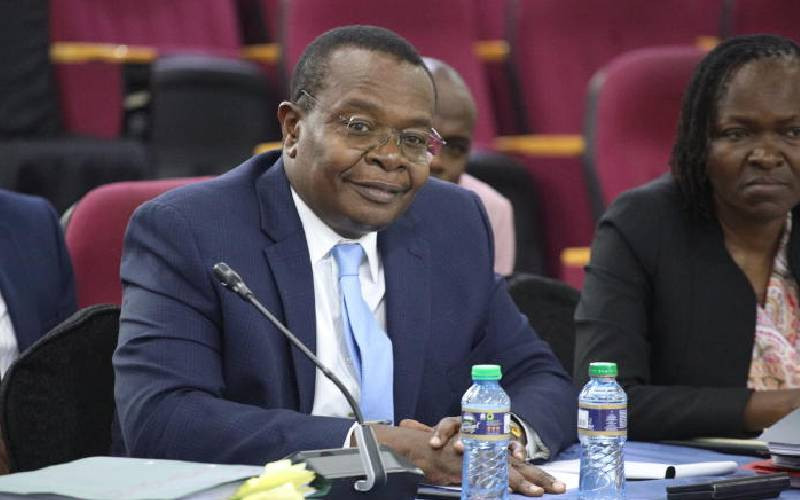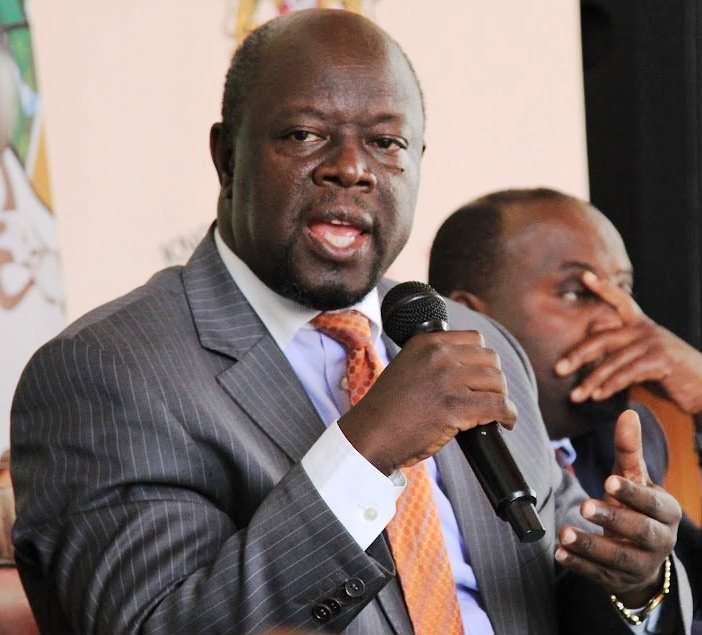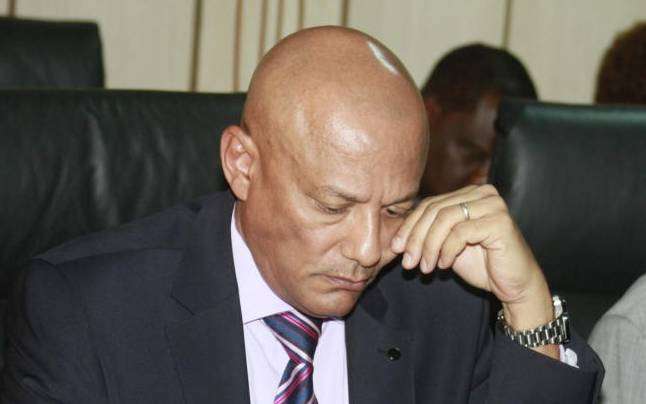A Senate watchdog committee has accused Busia Governor Paul Otuoma of failing to implement key resolutions arising from the audit of the county’s financial statements for the 2022/23 fiscal year. During a Senate Mashinani sitting held at the Agricultural Training Centre in Busia, senators expressed disappointment over what they termed the governor’s laxity in addressing financial irregularities previously flagged by the Auditor-General
By The Weekly Vision Reporter In Busia
A Senate watchdog committee has accused Busia Governor Paul Otuoma of failing to implement key resolutions of the Senate concerning the county’s financial reports for the 2022/2023 financial year.
During a Senate Mashinani sitting held at the Agricultural Training Centre in Busia Town, the County Public Accounts Committee (CPAC) expressed its disappointment with the governor for not taking disciplinary action against certain county officers who failed to provide relevant documents to the Auditor-General, contrary to the Public Audit Act.
In its report, which the House adopted in March, the committee had directed the governor to take administrative action against officers who did not submit documents to auditors at the time of audit, as required under Section 62 of the Public Audit Act. Furthermore, the governor was instructed to submit a status report on the actions taken to Auditor-General Nancy Gathungu’s office within 60 days of the report’s adoption.
However, when Governor Otuoma appeared before the committee on Tuesday, 6th October, he failed to provide evidence of compliance with the Senate’s directive. “In the absence of any evidence that you complied with the recommendations of the Senate, this committee has no choice but to ask the Ethics and Anti-Corruption Commission (EACC) to intervene and investigate these matters,” ruled Senator Moses Kajwang’, the committee chairperson.
Governor Otuoma, however, defended himself, assuring the committee that he had already taken disciplinary measures against some culpable officers and would continue to do so where proof of negligence or misconduct existed.
The documents in question relate to an accumulated figure of KSh176 million, whose expenditure was not supported by documentation. Out of this amount, KSh16.5 million was spent on domestic travel and subsistence, while KSh38 million went towards foreign travel and subsistence.
Regarding the unsupported domestic travel expenditure, Auditor-General Gathungu told the committee that the county failed to provide any evidence, such as invitations to meetings or conferences, attendance registers, or any other proof of travel. She added that the late surrender of imprests had not attracted interest charges as required under existing financial regulations.
Consequently, the Senate, through a House resolution, directed the County Executive to initiate recovery of the funds within 60 days, failing which the EACC would commence investigations and institute recovery proceedings.
During the audit, Gathungu reviewed payments amounting to KSh18.5 million and noted that a local tours and travel firm had been paid KSh14.2 million, representing over 80 per cent of contracts for air travel agency services. However, no explanation was provided as to why the firm consistently won the tenders, and the relevant procurement documents were missing from the audit review.
The hospitality supplies and services account showed total expenditure of KSh146 million during the year, including payments totalling KSh8.3 million without proper supporting documents. Attendance lists did not match local service orders (LSOs), and essential documents such as tender opening minutes, evaluation records, work plans, and activity budgets were missing.
The County Executive’s inability to explain the inconsistencies prompted the committee to refer the matter to the EACC for investigation and recovery of any funds found to have been irregularly spent.
Further, the salary expenditure records revealed that wages amounting to KSh119 million were processed through a manual payroll system for 47 employees aged above 60 years, none of whom were captured in the Integrated Payroll and Personnel Database (IPPD).
While acknowledging that the manual payroll could be prone to errors or misstatements, Governor Otuoma argued that some of the affected officers had previously served in other government agencies before being transferred to the Busia County Executive.
The officers in question included two members of the County Executive Committee, an economic advisor, the chairperson of the County Public Service Board, and others categorised as persons with disabilities (PWDs).In her report, Auditor-General Gathungu questioned why the county continued paying these officers outside the IPPD. While noting that the system excludes individuals aged above 60, she pointed out that the inclusion of PWDs in this category was unclear.
The committee also revisited an audit query that appeared to have been overlooked. The matter, first raised in the 2022/2023 financial year, concerns the construction of the Governor’s Lounge, a project valued at KSh29 million. The EACC had since seized all documents related to the contract for investigation.
Senator Kajwang expressed concern that despite EACC’s involvement, the same matter was listed again in the 2024 audit report. He directed the Auditor-General’s office to keep the issue open until EACC concludes its investigations.





